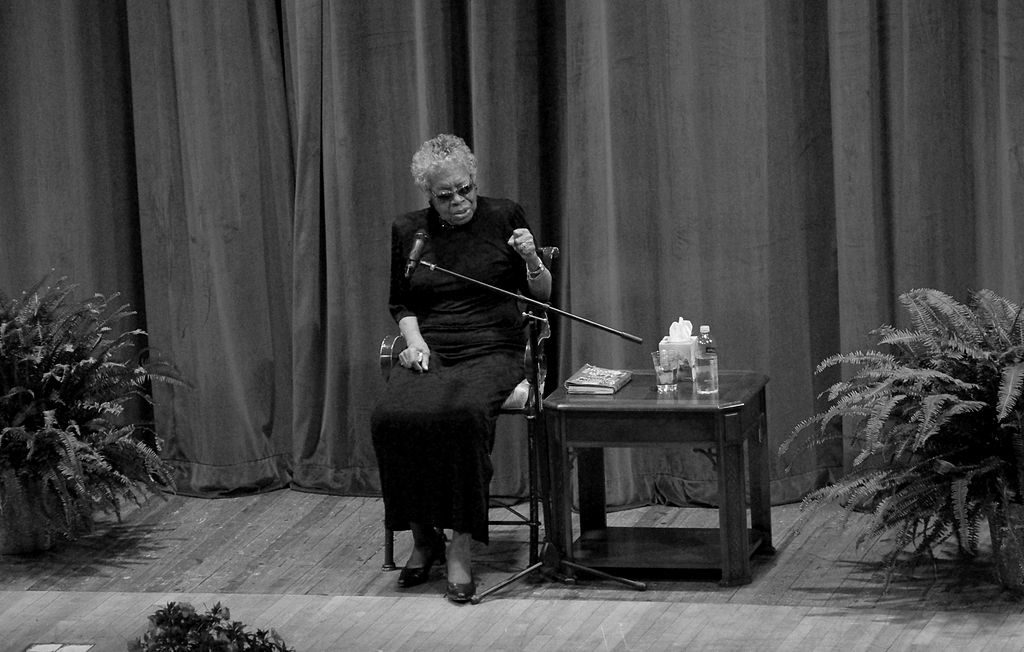Hunter S Thompson is one of the most legendary figures in journalism. Known for his immersive, first-person style, his writing is unlike any other. In 1970, with the publication of the Kentucky Derby is Decadent and Depraved, Thompson introduced gonzo journalism, a breed of reporting that puts the writer in the centre of the story.
Gifted and troubled, Thompson was deeply committed to his craft, studying the work of the authors he admired. He worked to hard to writer better: Thompson typed out F.Scott Fitzgerald’s classic The Great Gatsby, “just to get the feeling, he said, of what it was like to write that way”, notes Louis Menand in the New Yorker.
And it turns out this exercise is a popular form of writing practice called copywork. Writers like Maya Angelou and Benjamin Franklin have used tactics like these to write better.
It’s encouraging, isn’t it?
Even the world’s best writers needed to commit to writing practice to create their work. Talent existed alongside dedication and a desire to achieve mastery. What this means is that we too can write better if we’re willing to put in the effort.
Now I’ve been on a mission to become a better writer, and I’ve experimented with many writing practice techniques. Here’s three of the ones I’ve tried, why they work, and how they help you write better.
1. Read Writing You Like
Common writing advice – apart from writing every day – is to read the kind of writing you like. Stock up on high-quality material; it’s an important first step on the journey of improving your writing.
Even celebrated writers turn to their favourite authors for inspiration and guidance.
William Zinnsser, journalist, Yale professor and On Writing Well, said he would read the work of E.B White just to have that writer’s style in his ear.
Maya Angelou, too, had writers that inspired her work:
“I just want to feel and then when I start to work I’ll remember. I’ll read something, maybe the Psalms, maybe, again, something from Mr. Dunbar, James Weldon Johnson. And I’ll remember how beautiful, how pliable the language is, how it will lend itself.”

Different platforms require different types of writing. You can, for example, read through Copy Hackers and Copyblogger for great examples of blog posts that use copywriting frameworks to understand the reader.
Consider what you like, and save specific openings, closings, or other elements.
2. Copy Writing You Like
Don’t worry, I’m not promoting plagiarism.
Thing is, reading good writing is only the beginning. Another effective tactic is copywork: Hunter S.Thompson’s habit of typing out the pages of The Great Gatsby.
In a post for Craft Your Content, Julia Hess, explains copywork is used for several different purposes. For instance, people rewrote the Bible to form a deeper connection to the text and today, parents use the technique to teach children how to write.
How do you take up this writing practice?
“Copywork means exactly what it sounds like: You take a piece of great writing, and you copy it down, usually with a pen, but it could also be typed,” writes Hess.
I do copywork regularly, and I found you end up doing a close study of the writing.
You also, as you write, begin to deconstruct the passages. For example, I noticed that skilled writers varied sentence structure and length. They used rich, descriptive language; I could visualise places I’d never visited, for instance.
3. Rewrite Writing you Like
It’s not a stretch to say Benjamin Franklin did a lot during his lifetime. Franklin would eventually become known as a great writer, painter, and, of course, one the Founding Fathers of the United States. Even as a 16-year old, Franklin had already embarked on a serious quest to live his best life.
And when the young Franklin did an audit of his writing abilities, he came to a crushing conclusion. Yes, his spelling and grammar was good enough, but he struggled with clarity, that holy grail of good writing. He set out to get better, reading his favourite magazines, like The Spectator, reports The Observer.
“I took some of the papers, and, making short hints of the sentiment in each sentence, laid them by a few days, and then, without looking at the book, try’d to compleat the papers again, by expressing each hinted sentiment at length, and as fully as it had been expressed before, in any suitable words that should come to hand. Then I compared my Spectator with the original, discovered some of my faults, and corrected them.”
I’ve tried this method; when I deconstructed these articles, I realised I needed to gain a better handle on grammar. Because I wasn’t sure about how to punctuate sentences, I often stuck with only a few limited structures.
Writing better requires mental energy, focus, and, commitment but. And if it ever feels like you’re struggling to put one word after another, remember even the world’s greatest writers experienced that same frustration.
In those moments, think back to this quote:
“Easy reading is damn hard writing.”
Featured image credit: Photo by Gustavo Linhares from Pexels
